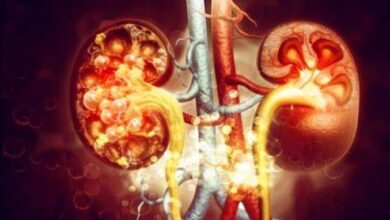Dangerous protein powder
Are you consuming protein powders, or does someone you know? If so, you should use this information. The 2024 dietary recommendations from the ICMR advise against using protein powders since they are needless and overuse may have major negative effects on one’s health. Let’s examine why with the assistance of specialists.

Protein powders: what are they?
“Protein powders are derived from sources like eggs, milk (casein or whey protein), soybeans, peas, grains, potatoes, and hemp,” says G Sushma, CARE Hospitals’ clinical dietitian. In addition, they could include extra sugars, thickeners, artificial flavors, vitamins, and minerals. Protein in the range of 10 to 30 grams per scoop is possible. Supplements intended for muscular building often include more protein than those meant for weight reduction. Concerns about possible health dangers and dubious usefulness have been raised regarding protein supplements, which are often sold as necessary for improving sports performance and muscle growth.
hazards to health
Yashoda Hospitals Consultant General Physician Dr. Sri Karan Uddesh Tanugula warns against consuming too much protein from supplements, as this might cause renal damage. The nitrogen from amino acids requires the kidneys to work harder to eliminate, which raises the risk of chronic kidney disease (CKD). According to a research in the Journal of the International Society of Sports Nutrition, high-protein diets may make renal issues worse, particularly in those who already have medical disorders.
Furthermore, there’s a chance that protein supplements have dangerous toxins and chemicals. Dr. Tanugula references research from the “Clean Label Project,” which discovered that several protein powders have BPA (bisphenol A) and other toxins in addition to heavy metals including lead, mercury, cadmium, and arsenic. These drugs have the potential to induce endocrine disruption, cancer, and neurotoxicity.
The imbalance brought on by eating distinct protein sources is another issue. Protein powders often lack vitamins, minerals, and fiber, which are found in whole meals and provide a balanced intake of these nutrients. Because supplements lack fiber, they may cause dietary deficits and gastrointestinal problems including constipation.
Efficiency of protein supplements
There is not much data to support the claim that protein supplements are better than entire meals. In comparison to a diet rich in natural sources of protein, supplementing with protein did not substantially increase increases in muscle mass or strength, according to a meta-analysis published in the British Journal of Sports Medicine. This calls into question whether protein supplements are really necessary for the normal individual who exercises regularly.
Reliance on protein supplements over time might change metabolism and encourage a negative eating habit. Instead of emphasizing healthy, balanced meals, many users could see supplements as a fast cure, which might lower the quality of their diets overall and result in bad eating habits.
Other sources of natural protein
The chief dietician of Yashoda Hospitals, Sujatha Stephen, RD, advises that natural meals prepared at home are the best source of protein. She points out that a lot of Indians, particularly vegetarians, often consume too little protein each day. In addition to milk and dairy products, vegetarians should eat millets or grains, paneer at least three times a week, and rajma, chole, beans, and peas every day. Aim for at least two eggs per day and three servings of chicken or fish per week, ideally prepared at home with less spice, if you’re not a vegetarian.
Several substitutes consist of
Powdered dry fruits
Millets
Eggs
Paneer
Chicken
Fish
Mutton
Rajma
Chole
Peas
Soy-based paneer
Powdered soya
Curd
Yogurt
Cheese
Milk







